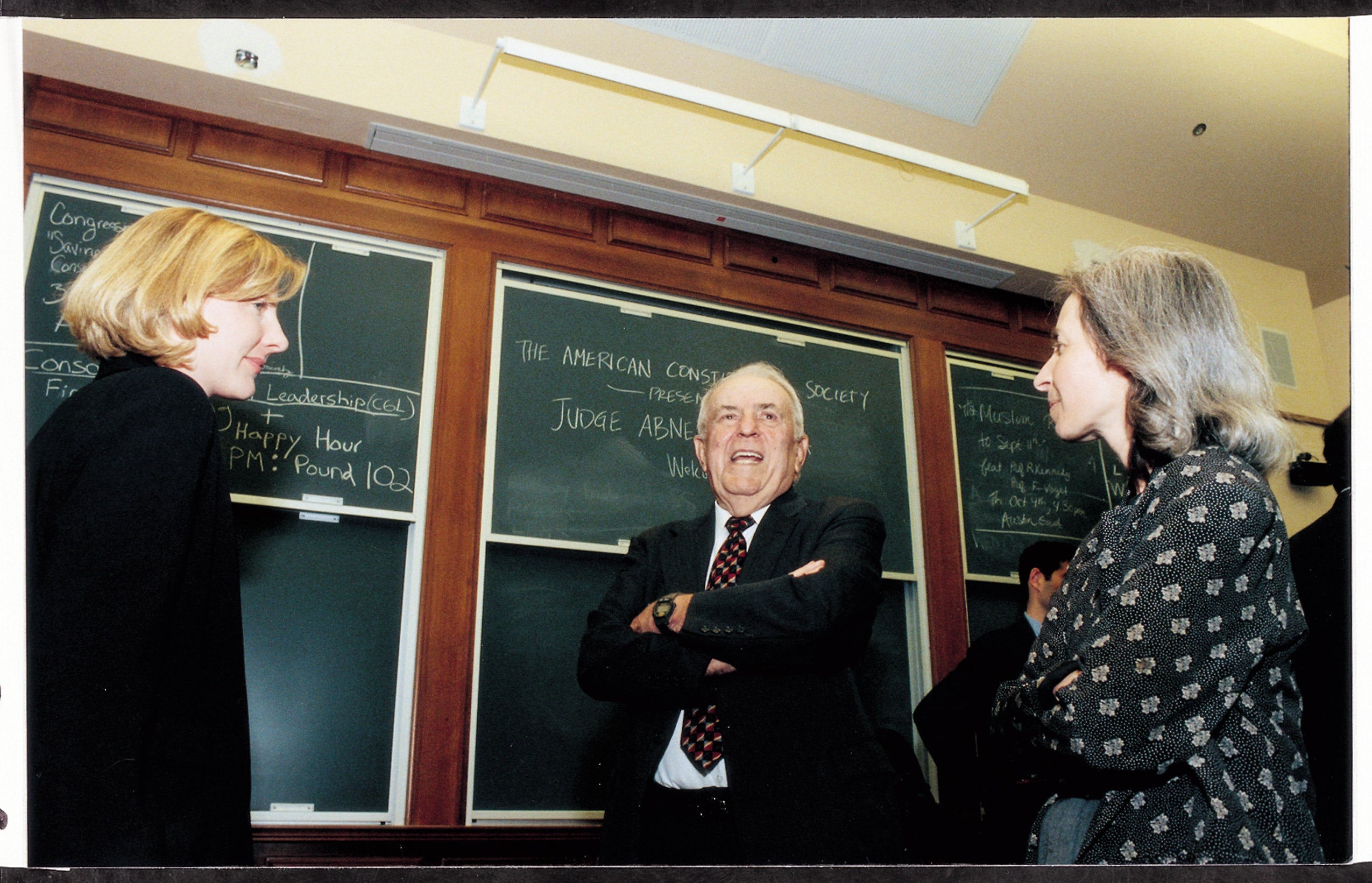Twenty years ago, the Federalist Society was founded to change the way people think about the law. It has done its job well, say members of a new HLS student organization that champions liberal values in the law.
“The Federalists have done a great job of pushing their agenda, and we ought to be doing as good a job pushing our agenda,” said Assistant Professor Heather Gerken. “The problem on the left side of the political spectrum is that we have not been nearly as organized or as coherent in our approach. So the hope is actually to provide an intellectual counterweight to what’s going on in Washington, D.C., right now.”
Gerken serves as faculty adviser to the HLS chapter of the American Constitution Society (ACS), part of a national organization formed last year to counter what members view as the prevailing conservative tilt of the judiciary and many law schools. National board members include HLS Professors Laurence Tribe ’66 and Christopher Edley Jr. ’78. The campus chapter launched in the fall with a speech by Abner Mikva, former federal appeals judge and White House counsel, who urged attendees to “bring justice back to the law.”
That theme galvanized many HLS students, said Corey Stoughton ’02, president of the student chapter, who noted that nearly 200 HLS students have joined ACS. “I think the organization fills a need . . . here and in law schools anywhere,” she said. “The truth is, one of the things that the Federalist Society has been successful at doing is shifting the debate to the right for the last 20 years.”
“Having an organized group of progressives alters the debate,” added ACS member Sanket Bulsara ’02. “Maybe that’s the bottom line of the ACS.”
J. R. Parker ’02, president of the HLS Federalist Society, said he welcomes the group “if they do in fact add debate and discussion to the Law School campus.” Parker attended the national ACS kickoff event over the summer, which featured speeches by Tribe, Mikva, and Janet Reno ’63. “The one thing that seems to underlie some of the impetus in founding the group is that law schools are conservative,” he said, “and I think that’s not connected to reality.”
Gerken acknowledged that liberal politics still pre-dominate on the HLS campus. Yet HLS students on the left need the organization as much as students at more conservative law schools, she said.
“Part of what ACS has decided to do is push liberal students intellectually in ways that they may not be pushed, simply because the campus does in fact tilt towards the left,” said Gerken.
The organization will also prepare liberal activists for life outside HLS, said Stoughton.
“It’s not just a student organization. It’s an alumni association,” she said. “We hope to use the connections to open up our events to HLS alumni and also build relationships between students and alumni and to translate their progressive ideas when they’re students into their career paths.”
